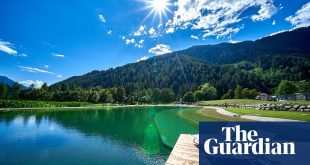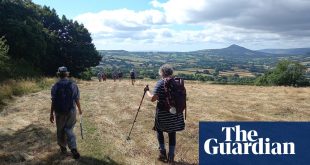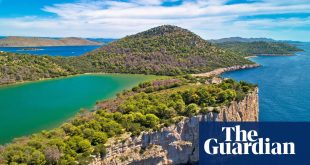It’s 2003 and my boyfriend and I are hovering nervously at a hotel reception in Woodbridge, Suffolk. We can sense the frosty contempt of the fiftysomething male at the desk when we ask for a double, not a twin room. After we check in, we’re both tetchy: I’m annoyed at how we’ve been treated, while my partner believes we should just “accept” it, that “it’s just the way it is.”
Back then, there was little you could do about such blatant prejudice – at least on a day-to-day basis. Some respite could be found trawling through the listings in Gay Times for gay-owned hotels and B&Bs. But, sadly, travel has long remained an issue for LGBTQ+ people, whether in the UK or abroad, where customs, legality and local cultural norms still need to be considered.
In the last decade, there have, of course, been positive changes. But we’re still not there yet. A new survey by travel agency Booking.com revealed that 71% of British LGBTQ+ travellers have experienced less than welcoming or uncomfortable experiences, and 61% saying they consider their safety and wellbeing when choosing a holiday destination.
And no matter how liberal a country may be, there’s always some anxiety: even the simple act of holding hands is still something only non-LGBTQ+ people can do without thinking or being alert to immediate surroundings.
Thankfully, much of Europe is relatively safe. Leaving aside obvious queer meccas such as London, Paris, Berlin, Amsterdam and Brighton, here are 10 places to contemplate visiting this summer.
Malta
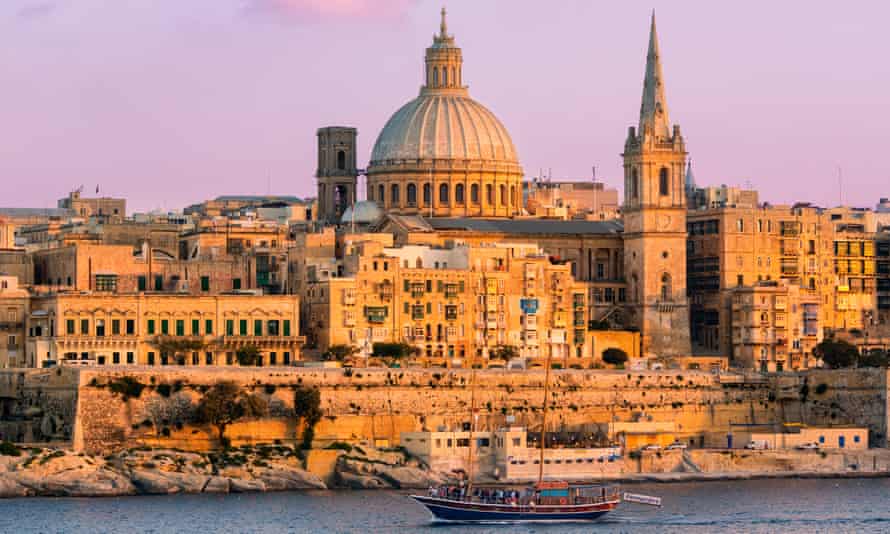
The first country in the European Union to ban conversion practices, Malta is one of the most LGBTQ-progressive nations in the world. It’s one of only five countries to make queer rights equal at a constitutional level and holds first place on ILGA-Europe’s Rainbow Europe Index, which ranks countries on LGBTQ+ equality.
On my last visit, a gay guide showed me round the winding medieval streets of Valletta and Rabat, pointing out essential bars and restaurants from Michelin-starred Noni to the Monaliza Lounge drag bar, as well as the nightclub Michelangelo in lively Paceville. Stay nearby at Number 11 (doubles from £121), a stylish “adults-only” boutique hotel. Pride runs a full week (2-11 September), and EuroPride comes to Valletta next year from 7-17 September, while for one-off LGBTQ+ parties follow s2sEvents on Facebook.
Dublin
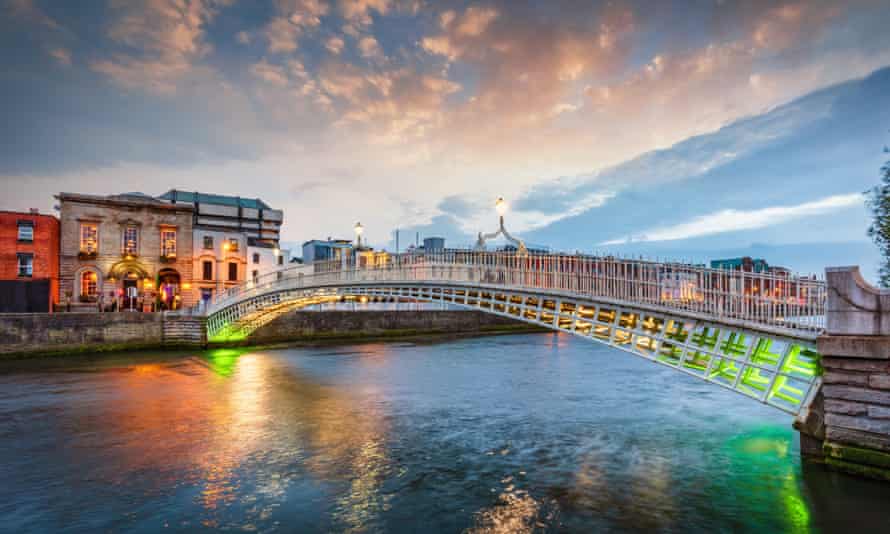
In 2015 Ireland became the first country to legalise same-sex marriage by popular vote. Two years later, Leo Varadkar was elected taoiseach, becoming the world’s fourth openly gay head of government. This spirit filters down into Dublin’s many LGBTQ-friendly establishments: two personal favourites are friendly brunch spot Social Fabric Café in Stoneybatter, one of the city’s most interesting neighbourhoods, and Street 66 bar, a useful cocktail spot before a night at iconic LGBTQ+ institution The George.
Also southside is gay-owned Gutter Bookshop (named after the famous Oscar Wilde quote), and the weekly “big gay disco” Sunday Social at Farrier & Draper; or cross the river for the Outhouse LGBTQ+ community resource cafe on Capel Street and PantiBar, owned by drag queen, activist and performer Panti Bliss. Dublin Pride runs 22-28 June, with the main parade on 25 June – stay at the centrally located Temple Bar Inn (doubles from £159).
Copenhagen
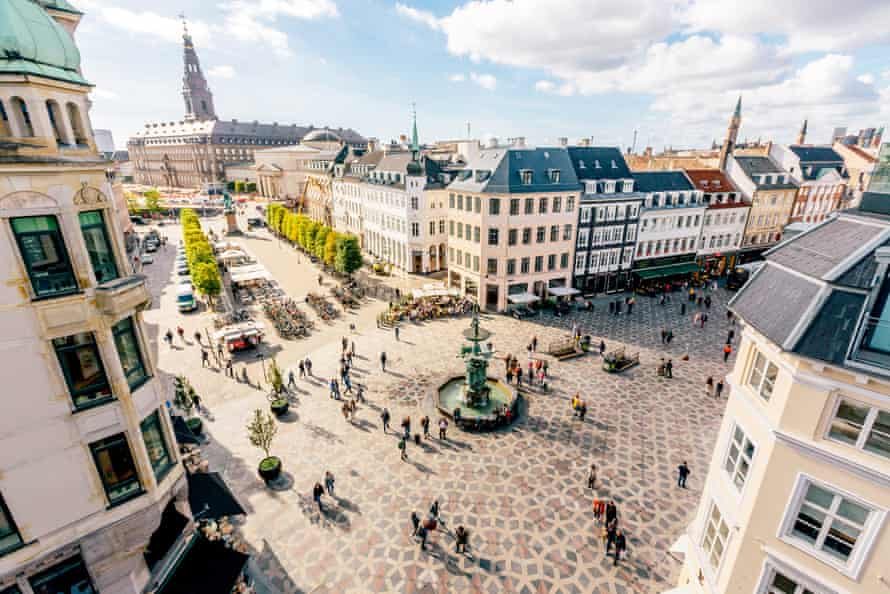
As with other Scandi cities such as Stockholm and Oslo, a high level of LGBTQ+ integration means the commercial scene in the Danish capital is small. Enjoy brunch at Oscar bar and cafe, before a beer at one of Europe’s oldest gay bars, Centralhjornet, which hosts drag and Sunday jazz sessions year-round.
Other venues include Bøssehuset in Christiania, home to theatre, performances, exhibitions and parties – a well-situated boutique hotel is SP34 (doubles from £133) in the Latin Quarter. Copenhagen Pride runs 15-21 August, while the MIX Copenhagen LGBTQ film festival, which started back in 1986, runs 21-30 October. No wonder locals say Copenhagen is “the LGBTQ+ neighbourhood of Scandinavia.”
Glasgow
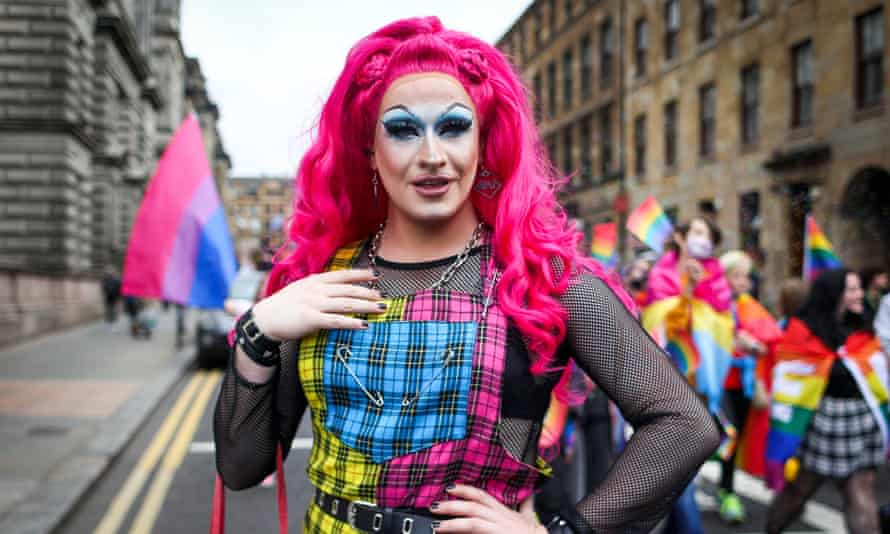
While Edinburgh has long been a safe choice for LGBTQ+ visitors, I prefer bustling Glasgow’s steep streets, diverse neighbourhoods and innovative food scene (head to Lobo in queer-friendly Strathbungo for delicious small plates). The city’s oldest gay bar The Waterloo dates back half a century, while another classic spot is the Underground bar, equally fun for drag or karaoke. Nearby Delmonica’s (known locally as “Del’s”), has been in Merchant City’s “gay triangle” since 1991.
To stay nearby, try the good-value Brunswick hotel (doubles from £50), on a street with venues marked by rainbow flags. Another must is “fiercely independent” LGBTQ+ bookstore Category Is Books: it’s super friendly and joyously busy. Pride Glasgow is this Saturday, 25 June.
Milan
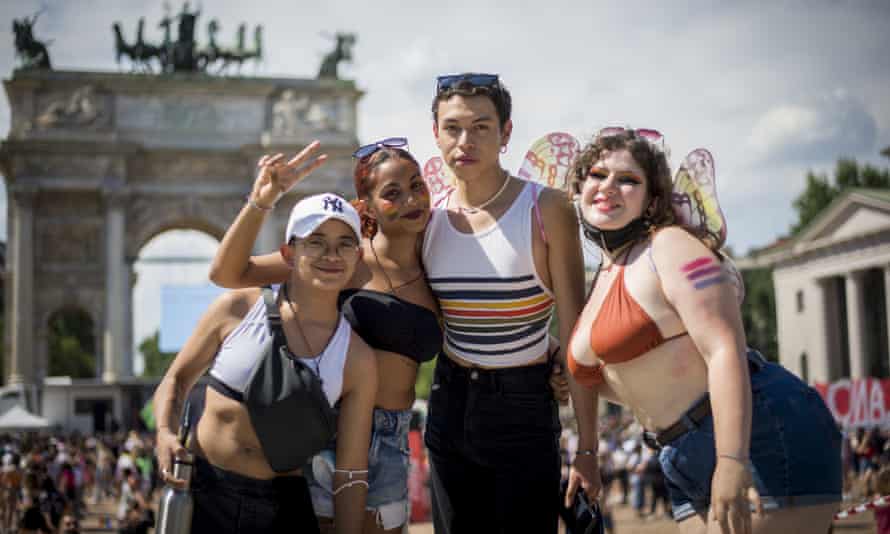
Italy still has a way to go to recognise LGBTQ+ residents in law: while same-sex relationships and civil unions are legal, marriage is currently not. But, unlike many Italian cities, in the fashion capital Milan it’s common to see same-sex couples holding hands or kissing. Head to Porta Venezia around Via Lecco for its queer centre – and bar-restaurant Leccomilano, Bar Basso (try its signature Negroni Sbagliato), or relaxed cafe-bar Blanco.
For a big night out there’s warehouse club Magazzini, the quirkily named Toilet, or Club Plastic: started in 1980, this club has been a haunt of Madonna, Freddie Mercury and Elton John. Meanwhile, Gate Party is a monthly queer event at with light shows, theatrical sets, dancers and performers. Pride is on now until the 2 July parade, which attracts about 350,000 people. Stay at the sweetly named Too Cute 2b Str8 (doubles from £67), a relaxed adults-only B&B.
Birmingham
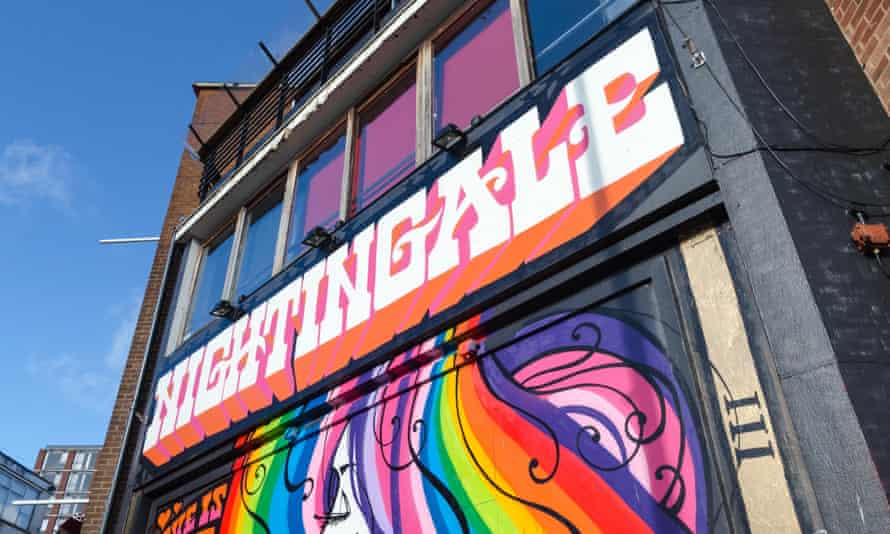
On my last visit to Birmingham the rainbow flag seemed to be everywhere, and the historic Gay Village, with its bars, shops and cafes, is hugely visible, centred largely on Hurst Street. Start with bibimbap at the thoroughfare’s Korean restaurant Topokki before drinks at Missing, Sidewalk or lesbian bar The Fox and dancing at the legendary Nightingale Club, the oldest gay club in the city, dating back to 1969.
This summer’s hot LGBTQ+ event is Fierce’s Healing Gardens of Bab (27 June – 17 July): part of Birmingham 2022 Festival, it’s an artistic response to this summer’s Commonwealth Games, celebrating “what the British Empire tried (and failed) to stamp out”. There’ll be artworks, performances, drag and creative club nights with participants from South Africa, Ghana, Canada, India and Australia. Meanwhile, Birmingham Pride takes place 24 and 25 September. For a central pad with a breathtaking city view try aparthotel Staying Cool (doubles from £99).
Mykonos
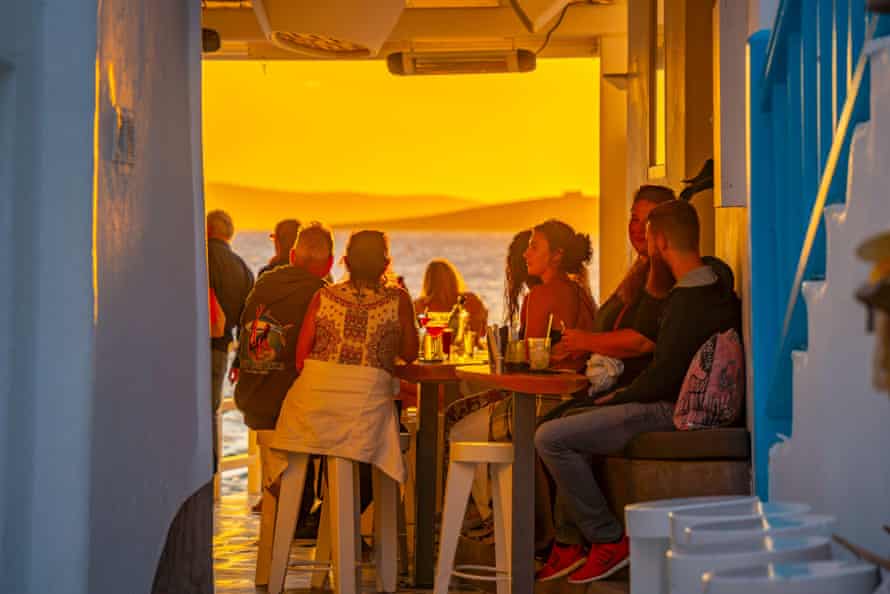
Most Mediterranean islands, as we’ve seen with Malta, are a safe haven for LGBTQ+ travellers, from dreamy Ibiza to Gran Canaria. Greece is forward-thinking in its LGBTQ+ rights: male and female same-sex sexual activity have been legal in Greece for more than 70 years. Mykonos’s rep as queer heaven dates back to the 1970s, when Jackie Onassis became a regular visitor (she first visited in 1961), before it blossomed as gay resort in the 1980s, with accommodation springing up for the largely male clientele.
In 2022, you can hang out at established hotspots Jackie O, bar Porta or Kastro’s, and stay at the Super Paradise (doubles from £249), handy for the island’s main LGBTQ+ beach. The season’s big gay dance festival is XLSIOR, attended by about 30,000 people (17-24 August)
Helsinki
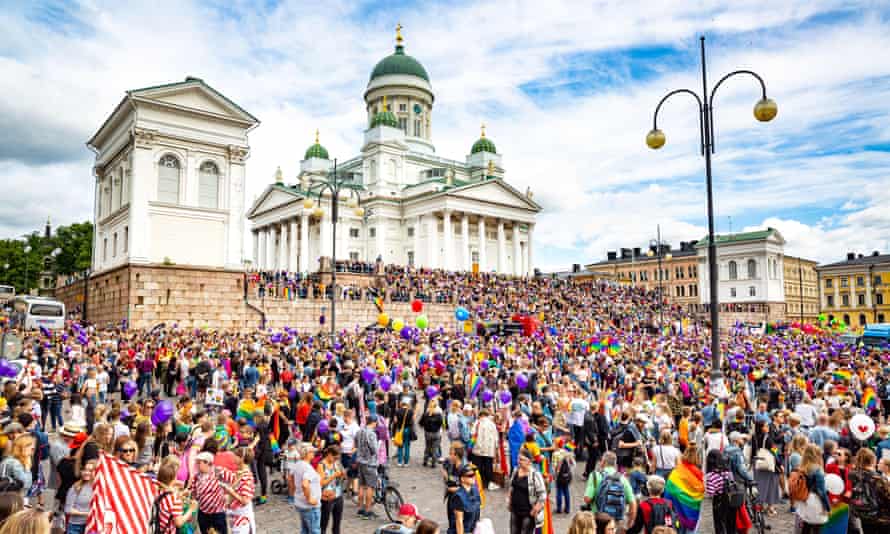
For many gay men of a certain age, Finland is inextricably associated with leather-clad iconic hero Tom of Finland, whose books depict a ruggedly sexualised masculinity during a time pre-1971 when homosexuality was still illegal. Now you can take a tour of where author Touko Laaksonen lived his whole adult life, passing the Kansalaistori (People’s Square) in front of parliament, once a clandestine meeting point for gay men.
LGBTQ+ karaoke fans should check out Mann’s Street, a boozy institution; other fun spots are Street Pride in the Kamppi district, and Kvääristö, a joint for queer women, transgender, and non-binary people. You might even be able to join the Helsinki Homoinvaasio (Helsinki Gay Invasion), whose purpose is to “shake up the gay scene” by taking over random straight bars. Meanwhile, Helsinki Pride takes place 27 June–3 July, regularly attracting 100,000. Stay at LGBTQ-friendly design hotel Klaus K (rooms from £80).
Antwerp
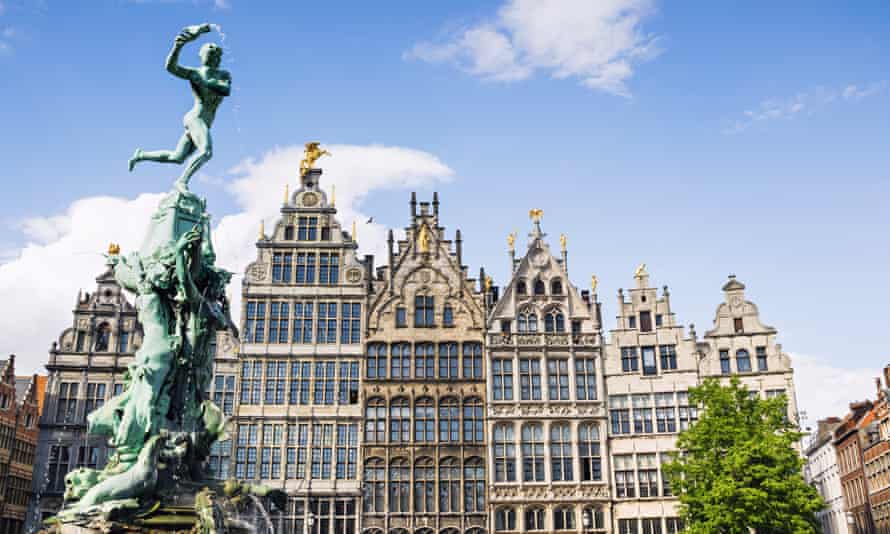
Like Malta and Denmark, Belgium scores highly in its LGBTQ+ rights protection. Astonishingly, same-sex sexual activity was legalised in 1795, while it was the second country in the world to legalise same-sex marriage, in 2003. With Brussels as its queer capital, the industrial waterside city of Antwerp, famous as a fashion hub, is equally inclusive.
Kartonnen Dozen, in the Zurenborg district, is the only LGBTQ+ bookshop in Flanders, while popular “safe haven” Hessenhuis cafe, which opened back in 1993, is housed in a building nearly 500 years old. Late-night owls should head for Cargo Club or fetish club The Boots, while Antwerp Pride runs from 10-15 August. Stay at Boulevard Leopold (doubles from £108) in the Jewish Quarter, whose original LGBTQ+ owners spent nine months converting a three-storey 1890 Flemish townhouse into an elegant deco palace.
Madrid
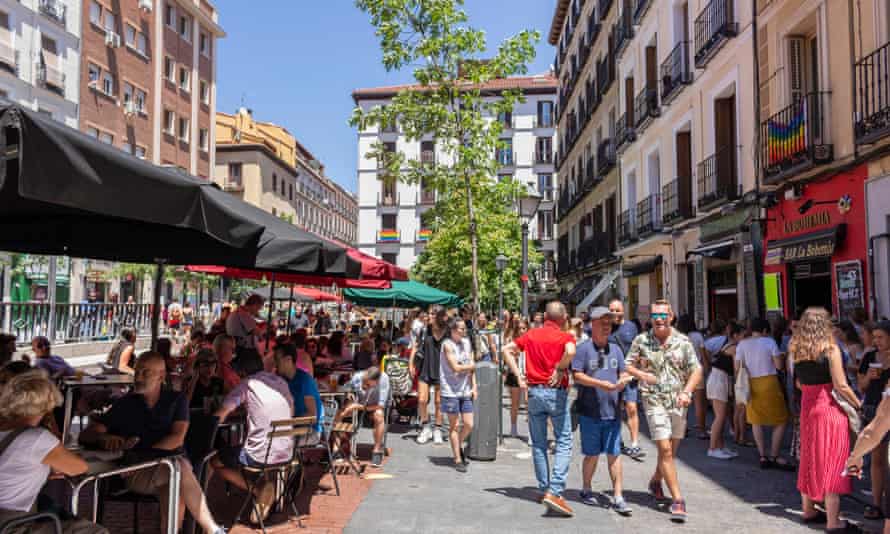
The facts are dazzling: the sweltering Spanish capital, with its 500,000-strong queer population (according to city hall) is Spain’s most queer-friendly city – despite Barcelona and Sitges enjoying a higher profile among many LGBTQ+ holidaymakers. Meanwhile, Madrid Pride (1-10 July) is the second biggest in the world (after San Francisco) and by far the largest in Europe, attracting more than a 1.5million people each year, including 300,000 overseas visitors.
Spain itself is one of the most LGBTQ-friendly countries in the world: same-sex sexual activity was made legal in 1979, and it was the third country to legalise gay marriage, in 2005. First stop has to be Chueca, Madrid’s “gaybourhood” with bars and venues dotted around Plaza de Chueca (also don’t miss the recently refurbished Mercado San Antón for tasty food stalls and a rooftop terrace). Watch drag at the cosy longstanding LL Bar, or sip cocktails at newish lounge-bar Lakama; stay at the “heterofriendly” adults-only Axel Hotel (doubles from £65) in the Barrio de las Letras.
 Top Naija News: Nigerian News, Breaking News Nigeria and World News Top Naija News is a daily news publication in Nigeria, delivering the latest breaking news in Nigeria and around the world.
Top Naija News: Nigerian News, Breaking News Nigeria and World News Top Naija News is a daily news publication in Nigeria, delivering the latest breaking news in Nigeria and around the world.
